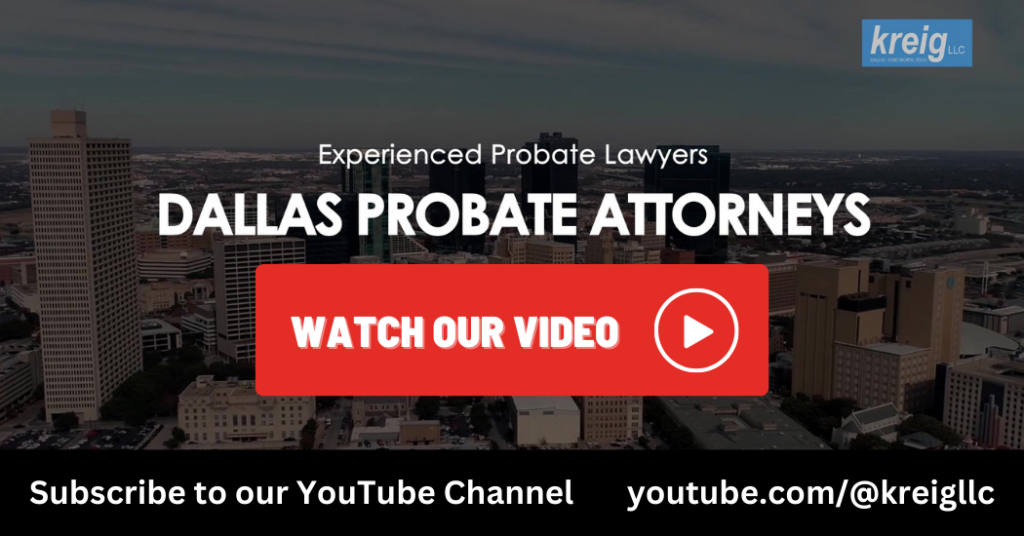Probate administration is the legal process of validating a will and distributing a deceased person’s assets to their beneficiaries. In Texas, if someone dies with a valid will, their estate will generally go through probate. It is during this process that an interested party can contest a will.
Challenging a will’s validity faces imposing evidentiary burdens. Mere suspicions or impropriety claims will not suffice. Understanding the high bar for overturning a compliant will, and the consequences of failing to meet it, allows informed contest decisions.
Burden of Proof in a Texas Probate Contest
In probate disputes, the burden of proof falls on the will contestant in Texas. This means the person challenging the will must prove it is legally invalid or defective. Merely demonstrating the will is unfavorable or unfair does not suffice under Texas law.
Will contests typically allege:
- Lack of testamentary capacity – The testator may have lacked the mental capacity to understand what they were doing when they made the will.
- Undue influence – Someone must have exerted undue influence over the testator in order to get them to make a will that favored them.
- Duress – The testator was pressured into amending the will a certain way.
- Fraud – The will must not have been created through fraud or coercion.
- Forgery – The signature on the will must be genuine and there can be no evidence of forgery.
The challenger must prove their assertions by clear and convincing evidence to overcome the presumption of validity granted to compliant wills. Meeting this burden of proof represents a formidable obstacle.
Consequences of Failing to Satisfy the Burden
If the will contestant cannot meet their burden of proving invalidity, serious consequences follow in Texas. The court will sustain the will’s probate and approve the estate distribution it dictates.
The unsuccessful challenger also faces potential liability for significant litigation expenses. Texas probate courts can order losing parties to pay the winners’ attorney and expert fees along with court costs. Estate debts and taxes owed may likewise be assessed against a failed contestant.
Interested Parties in a Will Contest
An interested party is anyone that may have an interest in the estate of the decedent as either a beneficiary or creditor. These include:
- The executor named in the Will
- The beneficiaries named in the Will
- The devisees named in the Will
- The spouse of the decedent
- The next of kin of the decedent
- Any creditor of the decedent who has filed a claim against the estate
Increasing Likelihoods of Success
While difficult, will contests can succeed with meticulous preparation and compelling supportive evidence. Strategies boosting probate contest success include:
- Having legal standing to challenge the will, such as being an heir or beneficiary.
- Acting promptly within statutory deadlines.
- Securing qualified expert testimony like medical opinions on capacity.
- Producing definitive documentation like earlier will drafts.
- Interviewing attesting witnesses about execution irregularities.
- Deposing the drafter to uncover undue influence or duress.
Even then, defeating the presumption of validity remains an uphill battle given Texas’ strict standards. But advance planning and diligence provide the best opportunity.
No-Contest Clauses
Testators can reduce contest risk using “no-contest” clauses threatening forfeiture for challenges. But these clauses must be in writing signed by the testator to be enforceable in Texas. Courts void no-contest clauses if a contest succeeds based on solid evidence of invalidity.
The Takeaway
In Texas, the party contesting a will bears the heavy burden of proving defects in execution or testamentary capacity. Without air-tight evidence, probate contests rarely prevail. Proactive precautions like no-contest clauses provide the best prevention against potential challenges.
Our Dallas Probate Attorneys provide a full range of probate services to our clients, including helping with will contests. Probate is what we do. Affordable rates, fixed fees, and payment plans are available. We provide step-by-step instructions, guidance, checklists, and more for completing the probate process.We have years of combined experience we can use to support and guide you with probate and estate matters. Call us today for a FREE attorney consultation.
Disclaimer: The content of this website is for informational purposes only and should not be construed as legal advice. The information presented may not apply to your situation and should not be acted upon without consulting a qualified probate attorney. We encourage you to seek the advice of a competent attorney with any legal questions you may have.
Don't miss out, get a copy today!












